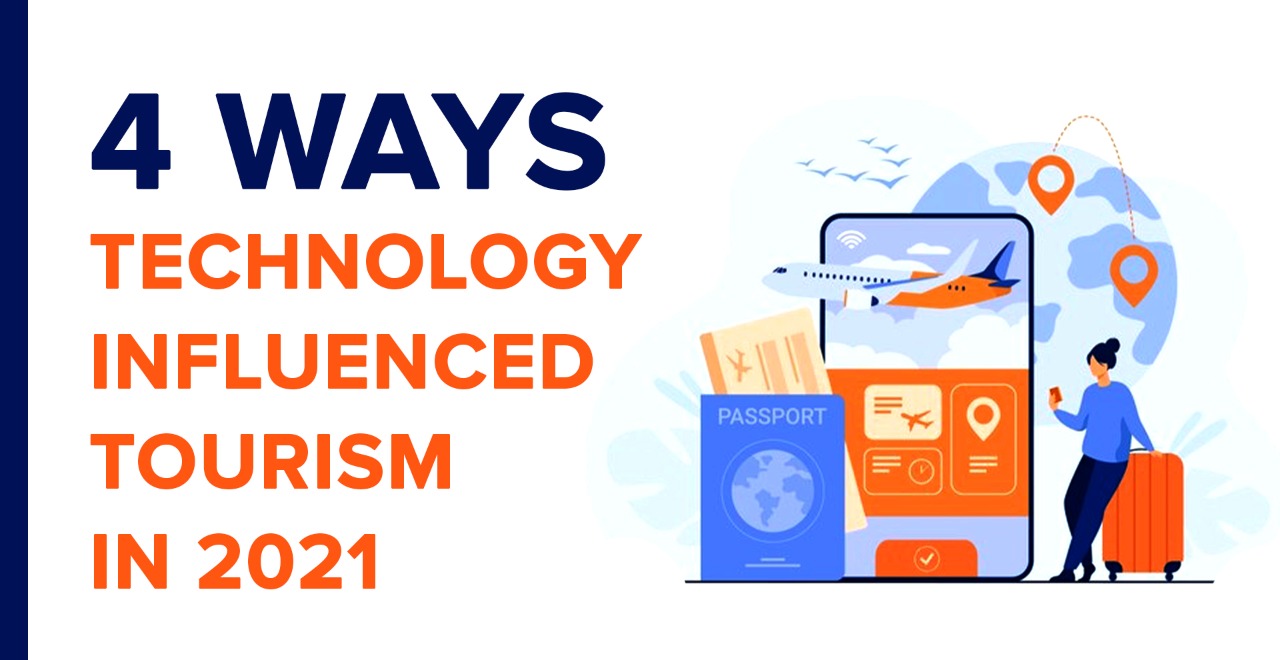


The world has opened up, which surely means the tourism industry is getting geared to resume normalcy. With all these talks and buzz around travelling, technology played a significant role in elevating your travel habits by enhancing operational efficiency and improving services and customer experience convenience, especially in the light of vaccine passports and more. So, how has technology influenced travelling in 2021? Let's discuss.
Efficiency at a Click
Within a few clicks, people can book flights, accommodations, and even most of their travel activities in their itinerary in a matter of minutes. The internet has made it possible to find the best flights and accommodations. Technology gives maximum accessibility for both consumers and tourism service providers, which shapes the ultimate travel experience. Artificial intelligence makes up the core of travel booking platforms which paves the way to understand consumer browsing patterns and habits. Access to all this data and information enables providers to create a curated search result to help customers book multiple travel services at once. Also, chatbots and virtual agents are the norms now to implement a seamless customer service experience across all platforms. Moreover, post-pandemic travelling also prioritises minimising human contact as much as possible. Thus, high-end tech such as IoT, robots, drones, and endless applications of AI (computer vision, voice recognition, predictive analytics, etc.) made it possible to add automation and eliminate humans from many routine operations (e.g. hotel check-in, security check, cleaning).
Tourism with Social Media.
Social media is another crucial factor that brought a shift in the tourism industry in a fascinating way. The rise of travel bloggers, vloggers, Instagram profiles, and more are driving factors in promoting tourism safely and well-informed. Social media adds a layer of transparency which erases the anxiety of travelling to a new place and exploring cultures from various well-documented contents of other travellers on social media. Companies work with multiple types of influencers as a marketing tool, suggesting holiday destinations and advertising travel products, which branches into budget-friendly, solo or group, and even luxury travels. The social media contents are endless, and there is always something for everyone and their desired travel needs. These rich contents are premises for essential conversations and fresh ideas for marketers to consider, which translates into effective campaigns, cultural shifts, and more innovations in tourism technologies.
Tact with Tech.
Could you imagine your life before Google Maps and Waze? Now, you no longer have to worry about reading maps and getting lost because you can now use Google maps to reach the destinations you want to visit. Moreover, language is no longer a barrier with all the excess language apps that play your interpreter on your travels, even to the most secluded destinations. Post-pandemic travels, however, accelerated technology adoption by implementing a whole new category of digital tools like COVID tracker apps and interactive web maps for health and safety purposes. These tools are necessary to make international travel possible for people and controllable for governments. Speaking of safety, contactless technology is an excellent example of managing utmost security and control for both consumers and providers. From touch-free payments to smart hotel rooms, contactless services powered by several technologies (sensors, RFID and NFC tags, facial recognition and modern biometrics) ensure safety and restore confidence for people to start travelling again.
Vetted Vaccine Passport
When discussing tourism in 2021, it is only apt to shed some light on the variation of digital health dossiers and the much-talked-about vaccine passports. Travel policies seem to be changing every hour, on par with the pandemic-to-endemic transition, thus travelling, especially internationally, require each traveller to prepare a digital health dossier. This dossier includes digital vaccine passports or paper certificates issued to travellers who have been either vaccinated against COVID-19, recovered from a COVID-19 infection, or recently tested negative. The term for these vaccine passports differs from one country to another; regardless, it means the same to ensure safe travels. Though governments are still in the process to establish foolproof guidance on how vaccine status information is used effectively, they also need to prioritise confidentiality and data privacy of citizens. There is also a concern for those with unequal access to vaccines, which is likely to entrench the global divide further. It is still quite early to comment on the power of the vaccine passport; one hopes that it supports tourism in the long run.
People's need to travel faster, safer, and more efficiently has fueled great technological solutions. Tools like Virtual Reality(VR) and Augmented Reality(AR) has catapulted the tourism industry to sell a tour to prospective travellers through the means of "viewing goggles" that allows a traveller to experience a destination uniquely even before going there. Tourism technology enables businesses to streamline their processes or even automate processes that traditionally require active human involvement. So, what do you feel about having a robot concierge at your next holiday destination?